During Asian Pacific American Heritage Month, TODAY is sharing the community’s history, pain, joy and what’s next for the AAPI movement. We will be publishing personal essays, stories, videos and specials throughout the entire month of May.
Susan Ahn Cuddy's story is full of firsts for the nation, starting with her parents, Dosan Ahn Chang Ho and Helen Ahn, the first married Korean couple to immigrate to the United States in 1902. Cuddy herself went on to become the Navy's first Asian American female officer, first Korean-born American female member and first woman gunnery officer, in charge of the ship's guns and ammunition, after she enlisted in 1942.
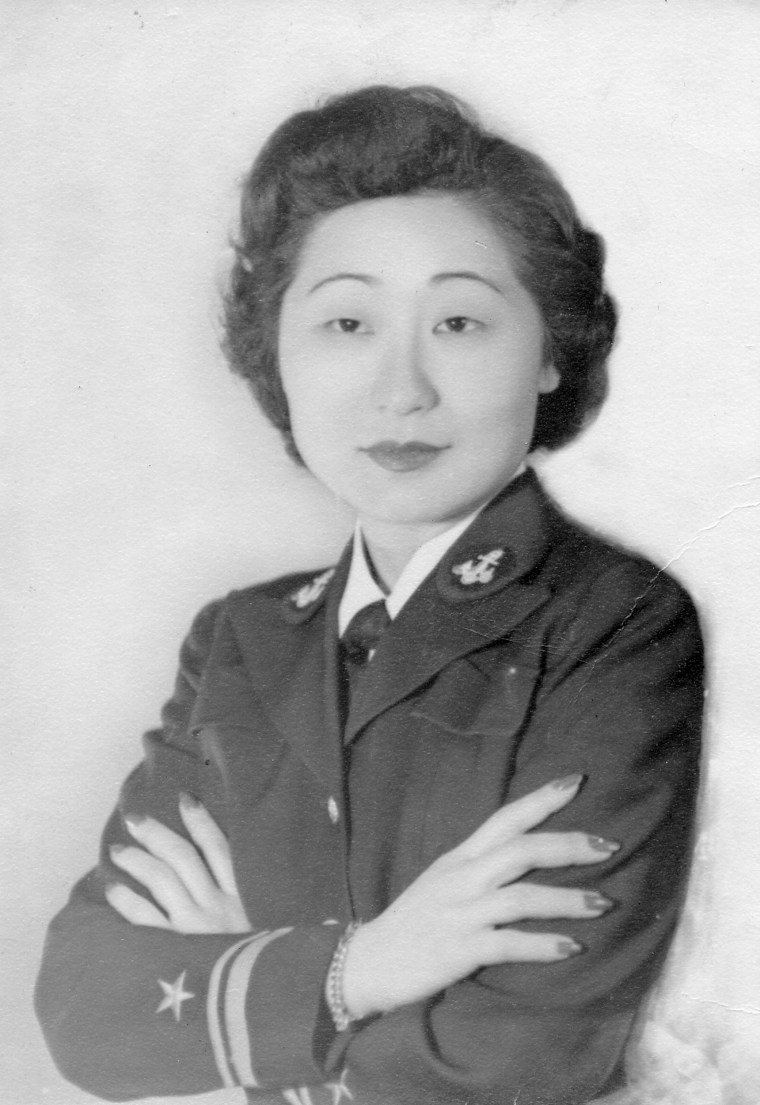
"She would literally say she didn't experience racism through all these things, but in those days, to her there was no choice," her son, Flip Cuddy, told TODAY. "You just had to put up with it if you wanted to blaze a trail, which she did."
Persistence to serve
Susan Ahn Cuddy was born in 1915 in Los Angeles and was propelled to pursue a career in the Navy, by her father, who was highly involved in the Korean independence movement of the 1900s.
"We grew up under a sense of freedom," she told the LA Times in an interview before she died at 100 years old in 2015. "(My father) didn't mind if we were rough, not ladylike. That was a favor to us."
She also learned to forge her own path through playing baseball in high school and at Los Angeles City College, whose baseball program she later ran.
Flip Cuddy said sports were "a huge pathway" for his mom to deal with "the traditional Asian view of women walking 10 steps behind" and the racial discrimination she encountered.
"My grandmother was the one that told the kids to play sports because that's the way to break the barrier," he added. "If you're good or if you're out there and part of a team, people look at you differently, and that's what happened in the Navy."
She initially applied to join the Women's Reserve of the U.S. Naval Reserve, aka the WAVES program, but was rejected, Flip Cuddy recalled.
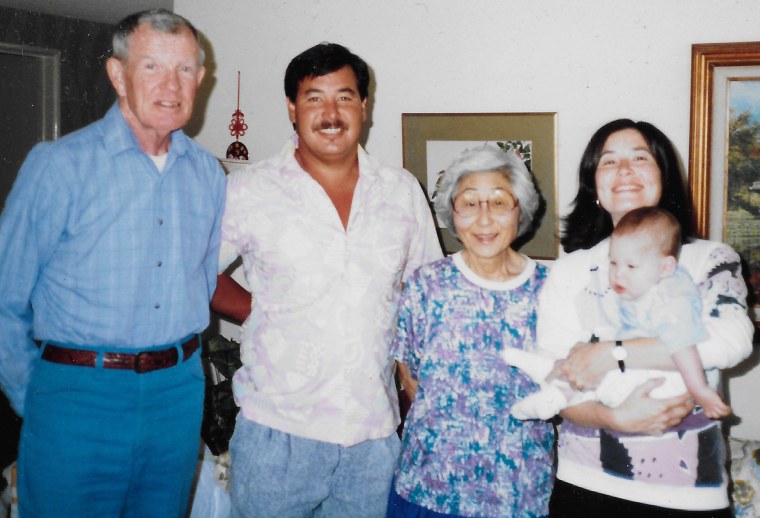
"There's other women that are getting accepted in the Navy ... that aren't as qualified as her, but she enlisted anyway," he said. She later found out she was rejected because of her race, according to her son and the Department of Defense.
Susan Ahn Cuddy told the LA Times that she saw joining the military as a "way to serve your family, country and your own."
Beyond being the first
Over the course of her Navy career, not only did she run the sports program at one of her bases, but she also made contributions beyond what her titles suggest.
During World War II, "she was literally analyzing all of this information coming back from the reports about the fuselages of down planes, the captured planes," Flip Cuddy explained. "With her team that she led and also from the data from the engineers, they knew which part of the plane to shoot. ... She would instruct them to shoot at these targets and shoot at certain times."
She also trained pilots on flight simulators and used her mathematical aptitude when working with codebreakers in the Naval Intelligence Office.
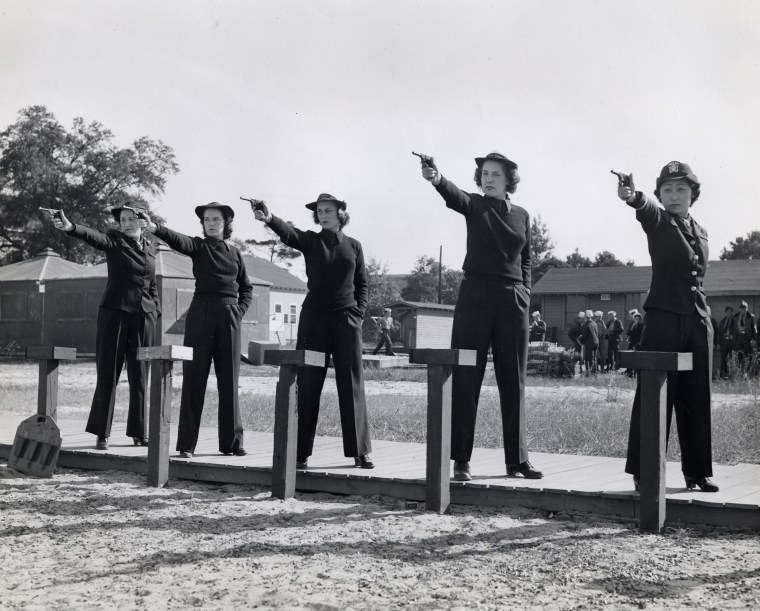
"She became the chief of (the code-breaking) department," Flip Cuddy said. "She had 300 scholars working underneath her, and she thought it was funny because she went to San Diego State (and they were) all these Ivy League people."
But Susan Ahn Cuddy encountered racism when dealing with classified information because supervisors were suspicious of her heritage, according to the Department of Defense. Still, she obtained a top secret clearance and worked for the National Security Agency. Toward the end of her military career, she established the Navy's research department at the Library of Congress, Flip Cuddy said.
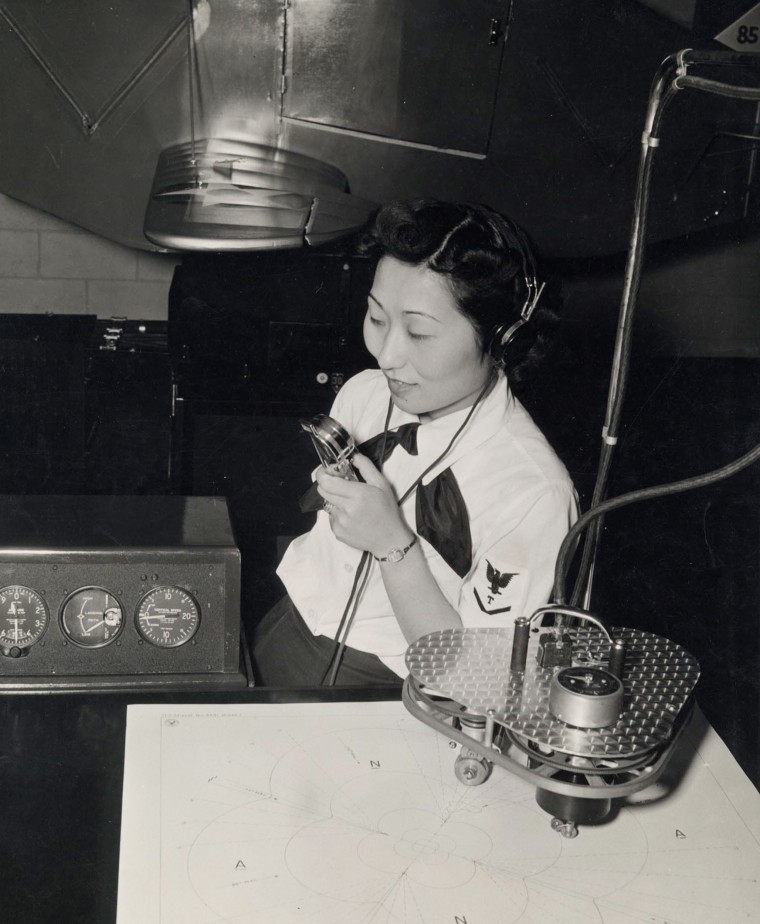
Her courage and tenacity live on
One Asian American woman currently in the Navy, Command Senior Chief Suxuan Oonyu, told TODAY that she's felt Susan Ahn Cuddy's impact on her career.
"Everybody that comes before us opens a door that we don't even realize is closed," Oonyu said. "There's things I wouldn't be able to achieve now, had she not done what she did."
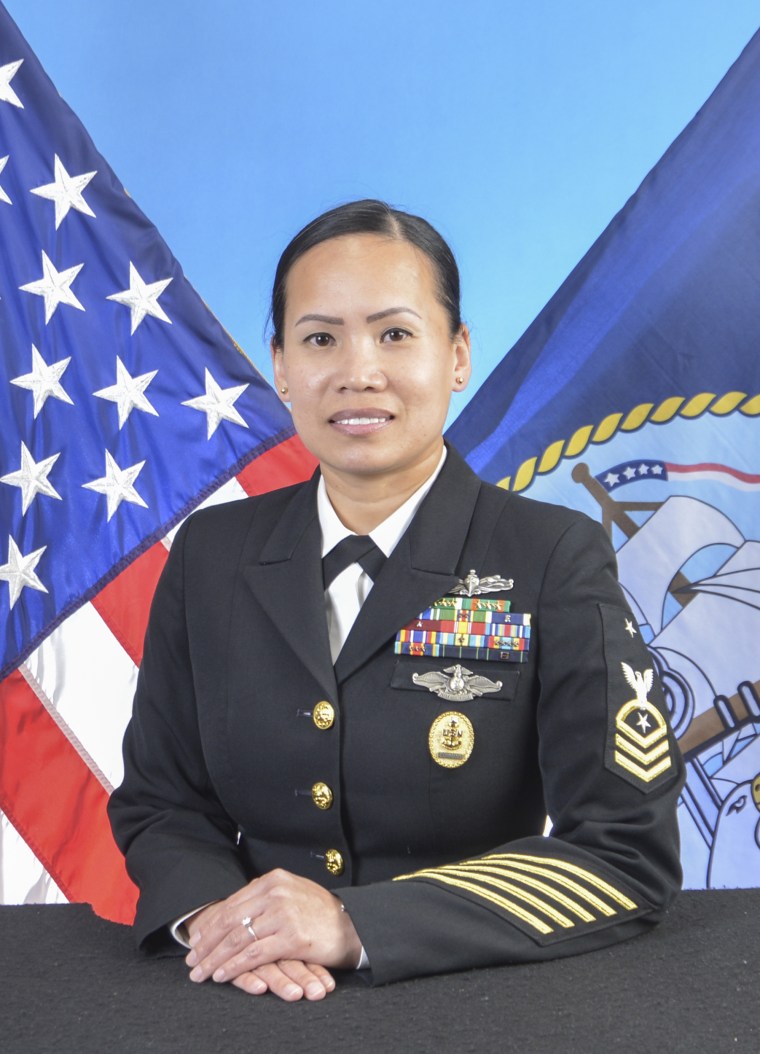
Oonyu is a Vietnamese immigrant and enlisted in the military after completing her associate's degree. She's currently the highest ranked enlisted sailor on the USS Miguel Keith in San Diego. While Oonyu believes she's had to deal with less racial discrimination than Cuddy, "as an Asian woman seeing other women being able to achieve things, it subliminally tells you that you can," she said.
At the beginning of her 21 years in the Navy so far, Oonyu said she remembers encountering only one other Asian woman, but she's seen the culture become more diverse since. Asians represent about 5.2% of the Navy, according to 2016 data.
Asked what she would want to tell Susan Ahn Cuddy, Oonyu replied, "Thank you for your courage because she couldn't have done that easily."
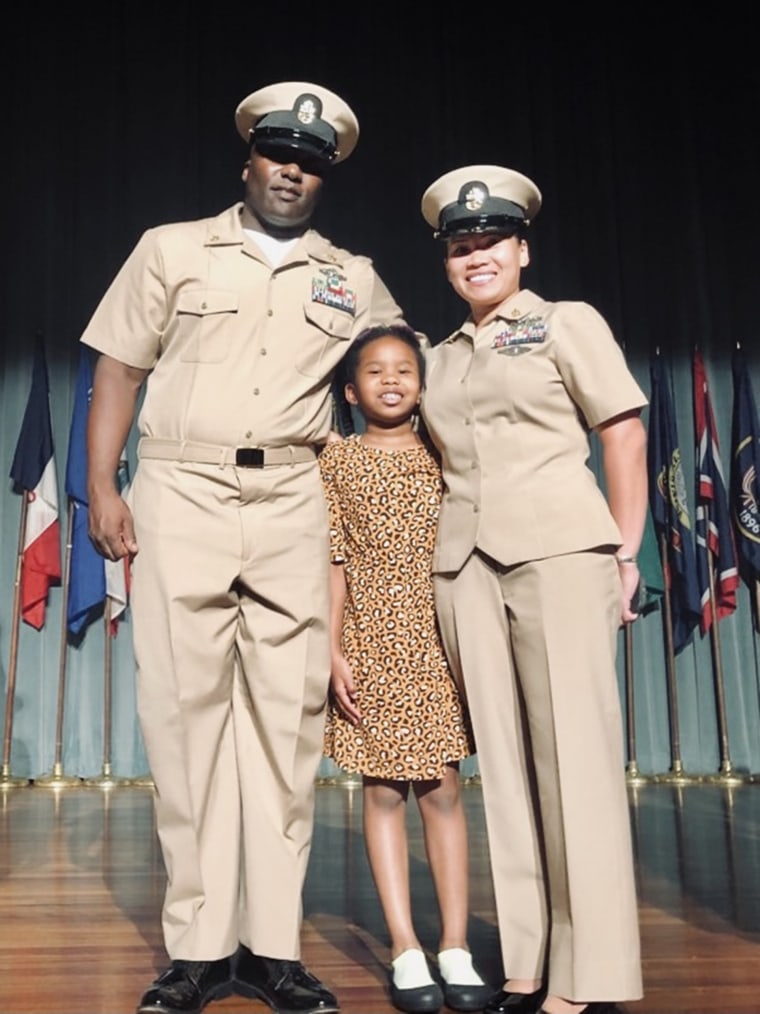
"She probably had a lot more barriers than I will ever face in my life. I would say, 'Thank you for ... the tenacity to be successful,'" she added.
Flip Cuddy sees his mom as influencing how Asian Americans are accepted in the military overall.
"What other Asian American woman took the path through the Navy she did? She did not just get her foot in the door. She opened it wide and made a seat for herself at the table," he said.
"Just imagine if she failed any of the responsibilities the U.S. Navy threw at her. Many men in the Navy were tough on her and set her up to fail. She impressed everyone with her multifaceted ability, keen aptitude and gets-the-job-done attitude. ... She changed how women were perceived in some of the most difficult rooted American traditions."
Related video:

